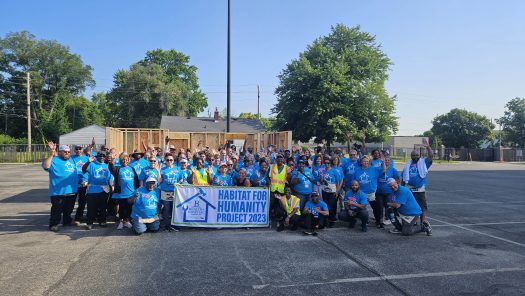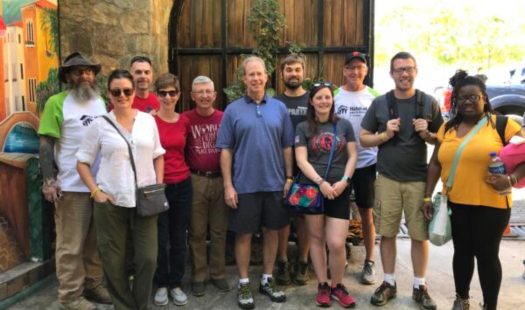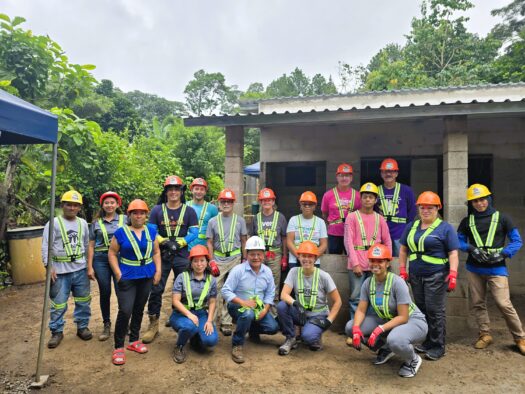From hardships to hope
Montez’s journey to stability
At the age of three, Montez’s family moved from Indianapolis to South Central Los Angeles. His childhood was influenced by the realities of gangs, drugs, and violence. “I wasn’t exempt from any of it,” Montez recalled, “in fact, I participated.” By 15, he had left home, involved in the world of drug dealing, moving from city to city. At 18, Montez was sent to federal prison.
He completed his GED, but at the time, he still carried aggression. Released after three years, he was pulled back into credit card fraud and drug transportation. This path led to another major turning point—armed bank robbery. The crime caused Montez to serve 20 years in prison. This experience changed Montez in ways he couldn’t have imagined. He earned an associate’s degree in social behavior from Indiana State University and participated in the Peer Forensic Apprenticeship with the Department of Labor, teaching classes on psychology and African American history. Montez discovered a passion for working with men who suffered from borderline personality disorder, and in the process, found a talent in teaching and speaking.
One of his most memorable moments was when he taught a fellow inmate how to read. It was, as he described it, the first truly unselfish thing he had done.
His children also played a huge role in pushing him to be better as well. “I wasn’t there for them because I was being selfish,” he reflected. He began therapy sessions to address trauma experienced because he knew he didn’t want to drag it with him once released.
When Montez was released, he hoped to rebuild his life with the support of his family. He leaned into his strength as a speaker, sharing his story with churches and organizations, and advocating for others. His passion for mentoring led him to Trusted Mentors, an organization dedicated to keeping adults housed and out of prison. After presenting to the Department of Child Services, Montez became the first person with a felony to work for the Marion County Youth Advocate Program. Here, he worked with teenagers on probation. It was through this work that Montez was introduced to Habitat for Humanity. Initially, he wanted to get the youth he mentored involved with volunteering. While the age requirement prevented his mentees from joining him on the build sites, Montez decided to volunteer himself.
Montez learned more about homeownership—something he had never thought about—and applied to become a Habitat homeowner.
“I wanted a place that my daughter could come visit and call home,” he said. “If she ever needed it, she would know I got her.”
As a homeowner of two years, his home is a space that represents stability, redemption, and the future he didn’t think possible. Reflecting on the day he became a homeowner, Montez still describes his feelings as disbelief, and every day he’s filled with gratitude. He encourages others debating homeownership to “roll the dice because you have more to gain than you have to lose.”
Through Habitat’s education program, Montez learned the ins and outs of homeownership and felt more confident. He shared his gratitude for building other homes and his own. “That’s an experience you can’t buy,” said Montez. With ownership comes the benefit of “not having that financial monkey on your back.” The financial burden from rising rent costs is now something Montez doesn’t worry about.
Today, Montez is a Supervisor of Facilitators at Goodwill Corporation and is deeply involved in the community. He is a cast member in a play about prison reform, sits on the boards of Storytelling Arts of Indiana and Constructing Our Future, a reentry program for women, and is preparing to release a documentary about his life. Montez was recently featured in the LA Times, sharing his story. He is also a published author, continuing to use his voice to inspire change.
Montez’s story reveals the power of transformation and the importance of home. “There’s nothing like being able to go home to your own home,” he said. “Your four walls, nobody else’s.” For Montez, homeownership represents not just financial freedom, but so much more. “As long as you’re breathing, you have a chance to change,” he said.
“Don’t give up on people. I am grateful and blessed to be where I am today because of the people who never gave up on me.”
We are proud to be a part of Montez’s journey and applaud his resilience in working toward a brighter future. Click here to make a gift that will help more families like Montez experience the hope and stability that comes with owning a home and read more inspiring homeowner stories.


